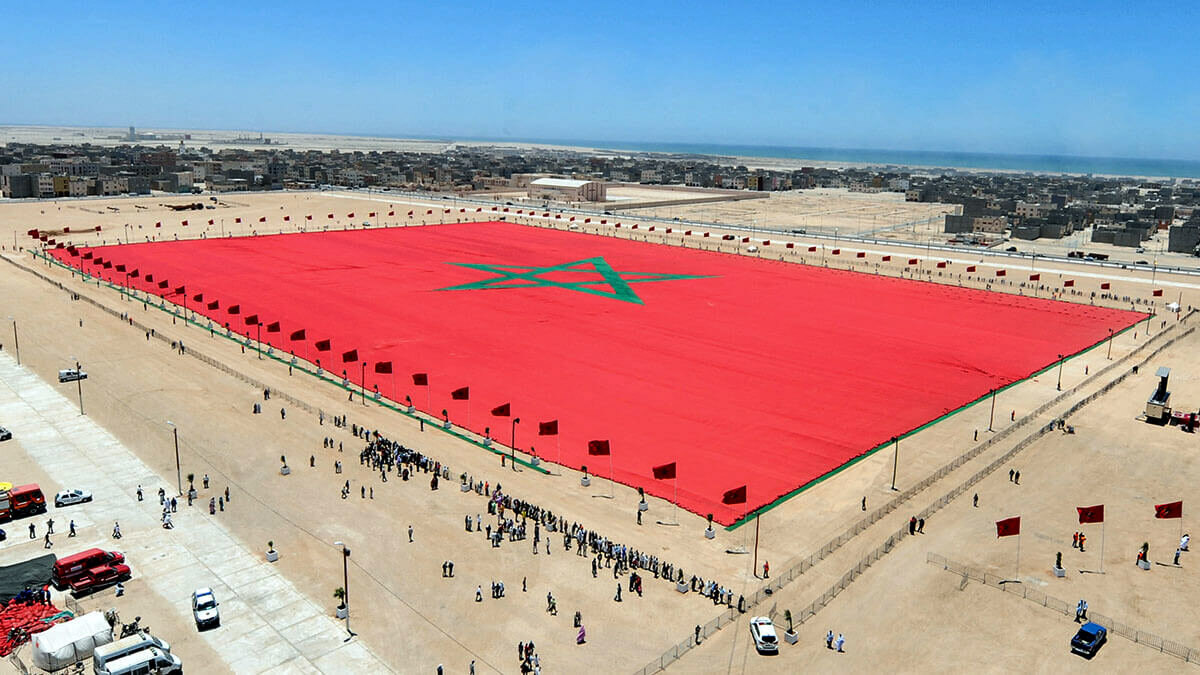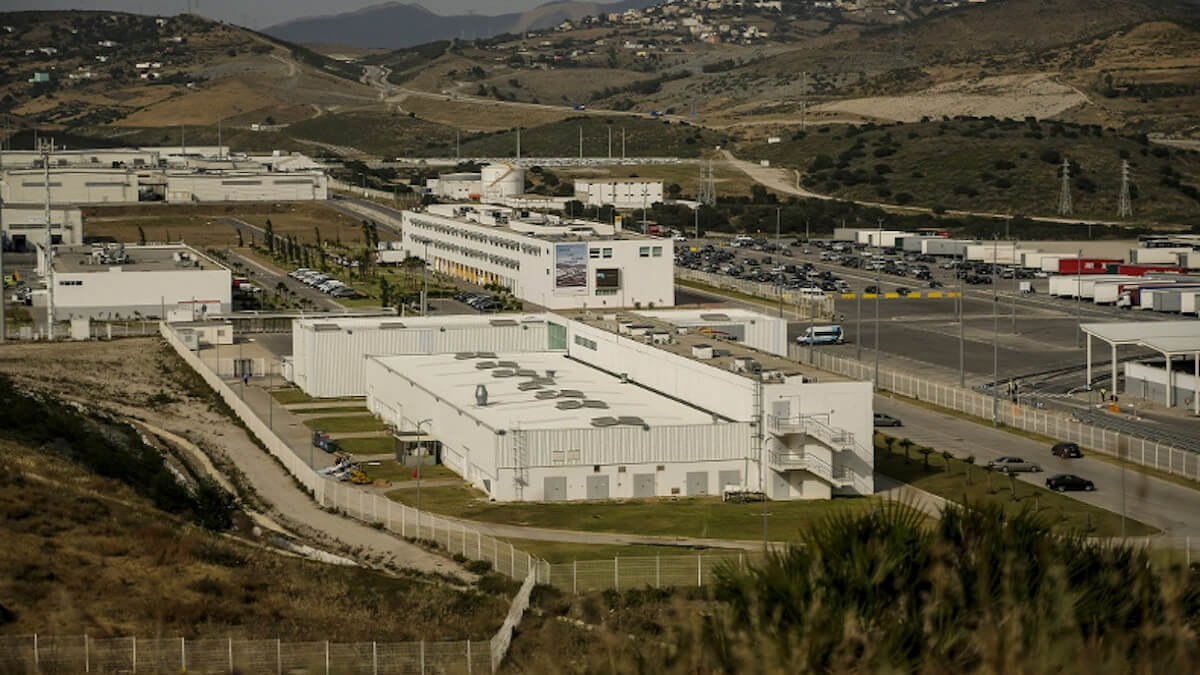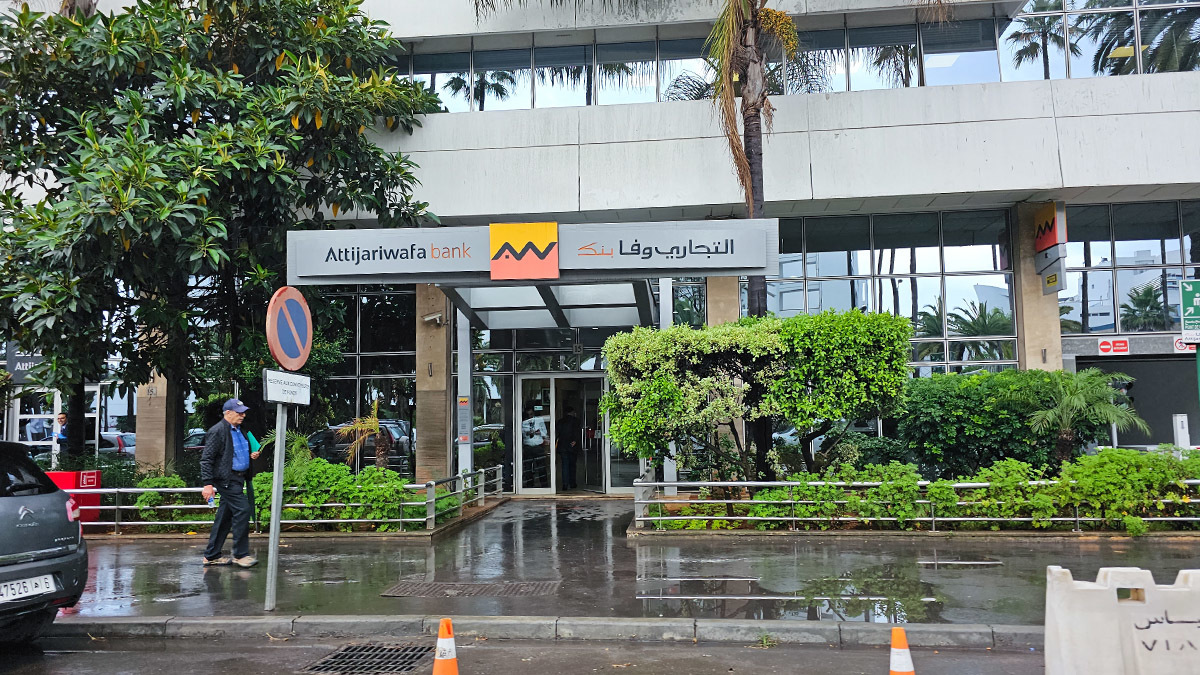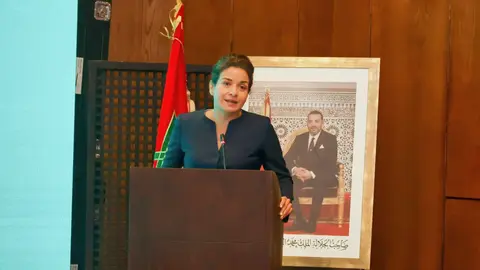‘The future of the Maghreb has a name: Rabat’

- The Moroccan Sahara
- The electric battery industry and foreign investment
- Key economic sectors
- Security and migration
‘The future of the Maghreb has a name: Rabat,’ is the conclusion drawn by former Moroccan Minister of Tourism Lahcen Haddad on his social media account after reading the exhaustive analysis ‘Morocco at the Crossroads,’ published by the Migration Research Institute of the Mathias Corvinus Collegium in Brussels, Andrea Bianchi.
According to the study, Morocco's diplomatic activity, its use of ‘soft power’ through cultural activities, its industrial appeal to foreign investors, its logistical plans and its geostrategic location make it the most stable country in the Maghreb region.
The media outlet El Orden Mundial defined the Moroccan kingdom as a ‘connector country’, i.e. a country with an emerging economy, a geostrategic location and free trade agreements that facilitate access to large markets.
And in the International Monetary Fund's 2025 ranking, the nation was positioned as the fifth African power thanks to the structural transformation of its economy and diversification.
According to Lahcen Haddad, Morocco stands ‘modern, visionary and forward-looking. A gateway from Europe to Africa and an African bridge to the West’.
The Moroccan kingdom has a great deal of influence on various issues, and there are some very important points to highlight regarding this North African country.
The Moroccan Sahara
One of the factors favouring Morocco's progress is the almost unconditional support of the United States in various areas, such as the recognition of the autonomy of the Sahara under Moroccan sovereignty since Donald Trump's first term in office in the United States.
Given the positive attitude towards Morocco's proposal for autonomy for Western Sahara from France in 2024 and the United Kingdom in 2025, it is plausible to expect that Russia and China will also take action on the matter and adopt the same position in the coming months.
French Foreign Trade Minister Franck Riester confirmed the initiative to finance the Porparco, a subsidiary of the French Development Agency, for an electricity line between Dakhla and Casablanca, as well as participation in the Moroccan-European gas pipeline project after a successful day at the Book Fair in Rabat. This is a sign of the confidence that exists in the Moroccan Sahara.
If China and Russia finally decide to support the position that the Sahara is Moroccan, it would be a real turning point in the geopolitics of the Maghreb, thus ending the conflict.

The electric battery industry and foreign investment
The media outlet Le7tv reported that the Kingdom is attracting the attention of major Asian groups because it wants to establish itself as a powerhouse in electric battery production.
According to the analysis, Morocco has 70% of the world's phosphate, which is used to manufacture batteries. The vastness of the reserves ‘could drive Indonesia out of the sector due to its proximity to the European Union market’.
Even after the closure of the US Agency for International Development (USAID), the Kingdom remains a free trade partner with the US giant, although inflation reduction measures are already in place.
Although the 2006 Free Trade Agreement with North America remains in force, the Chinese company CNGR Advanced Material Co. Ltd. announced after the pandemic that it would invest $2 billion in the construction of a cathode plant to supply other markets.
The Chinese company's executive director in Europe, Thorsten Lahrs, admitted that Morocco is an ‘ideal location’ due to the low bureaucratic requirements for construction and the speed of production compared to other sites, as well as the fact that the goods can be shipped to other countries if the American and European markets close.
The company's initiative to invest in Moroccan land to extract materials has also been emulated by companies such as LG Chem of Korea, Tesla and Huayou Cobalt.
In line with low-cost electric batteries, the Moroccan automotive industry has also been booming since it positioned itself as an emerging power in this field, according to various media reports.
The fact that Morocco has signed free trade agreements with the EU and several African countries other than the United States greatly favours the sector and attracts foreign investors such as Renault and Peugeot.

Key economic sectors
The sectors mentioned above are not the only ones that are booming. The study indicated that areas such as pharmaceuticals, agro-industry, fertilisers and banking are also experiencing improvements.
Overall, according to Gedeth Network, the resilience of the Moroccan kingdom has demonstrated steady economic growth. In 2025, it detailed that ‘the country is expected to maintain a GDP growth rate of around 3.6% thanks to its solid industrial, agricultural and service base’.
In the agro-industrial sector, the website explained that it remains very important for the economy because it has public policies that promote its modernisation and infrastructure improvements.
And it is no coincidence that, as Bianchi pointed out, three Moroccan banks are ranked among the top 10 in Africa, with ‘more than 90 billion dollars in assets’. What's more, they are present in 22 countries on the African continent.
Africa's expansion was helped by the withdrawal of European players during the 2008-2009 financial crisis.
‘Morocco's advanced banking system puts the country in a strong position as a geographical hub for banking services for North and West Africa,’ Bianchi explained.
Former minister Lahcen Haddad summed it up clearly: ‘Rabat is becoming an African centre for services and finance.’
Morocco is also committed to sustainability with renewable energy projects such as the Noor Ouarzazate solar panel complex, which was highly praised by the German Development Bank.
Head of Government Aziz Akhannouch confirmed this at the 4th UN International Conference on Financing for Development: ‘Morocco, under the wise leadership of His Majesty King Mohammed VI, has continued to strengthen its structural reforms in order to achieve inclusive and sustainable development.’

Security and migration
It is true that the European Union has investment agreements and economic plans with Africa. However, according to Bianchi, its diplomatic presence is being reduced over time by a policy of strategic ignorance fuelled by Russophobia.
As a result, political conflicts are emerging between African countries and Western nations. People are also being influenced or put at risk by dangerous extremist ideologies that reject any kind of dialogue.
As the analysis indicated, NATO's strategic role in 2020 was proof that establishing good relations with the Maghreb region prevents problems such as armed migration, a tool of manipulation based on the mass arrival of migrants.

For this reason, Morocco is key to security in migration issues, so that it can be carried out in a stable and accurate manner within a tense environment. Le7tv explained: ‘Its geographical location, balanced migration policy and cooperation on security issues make it a key partner in regulating migration flows.’
As for the Moroccan defence sector, the newspaper La Razón highlighted that the North African nation has begun manufacturing military vehicles for local use and export abroad.
It also reported that the Moroccan kingdom signed an agreement between the Moroccan National Defence Administration and the international Tata group in front of the Royal Armed Forces to improve strategic cooperation with India. This consolidates Morocco's position as an emerging defence power and strengthens its strategic independence.









